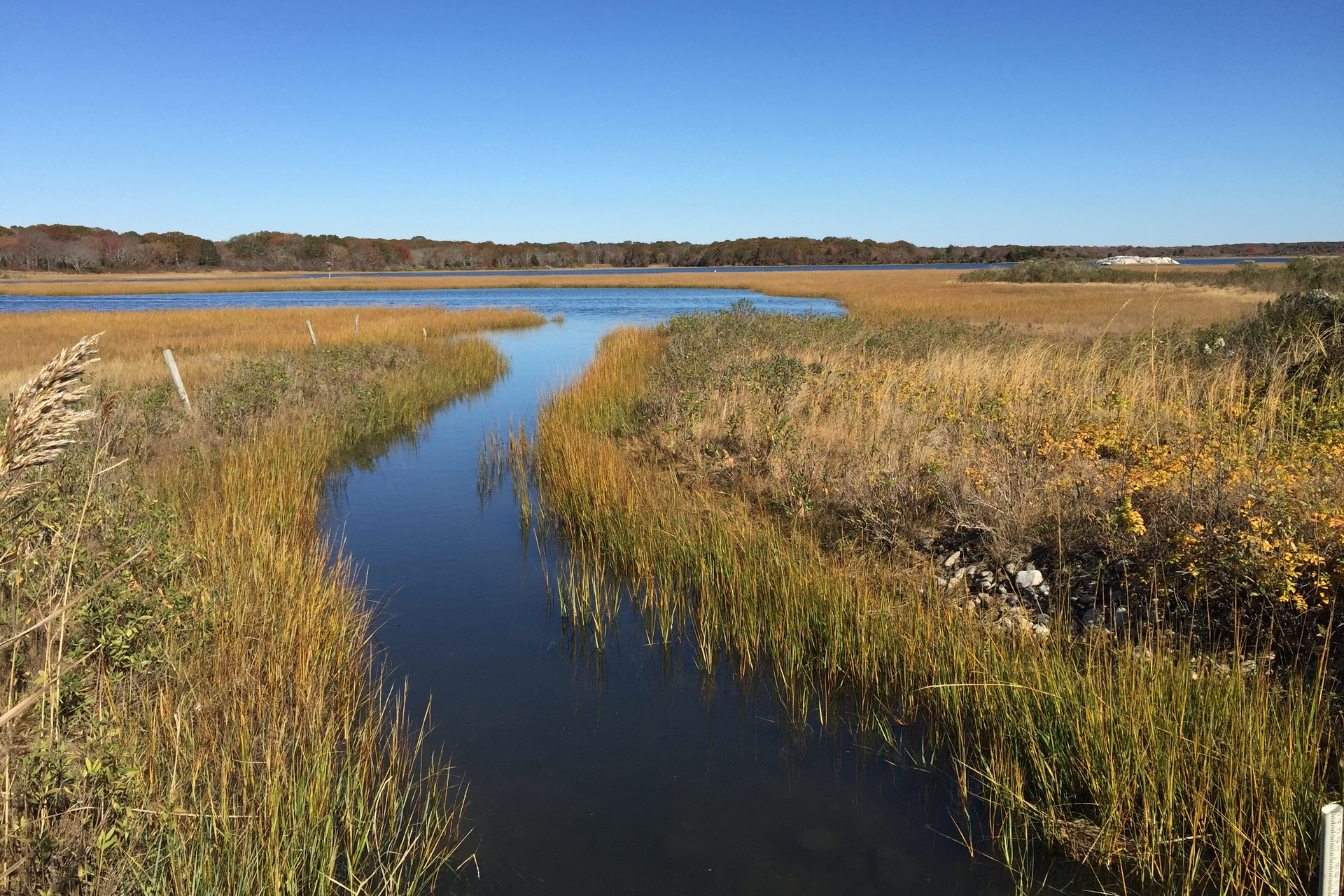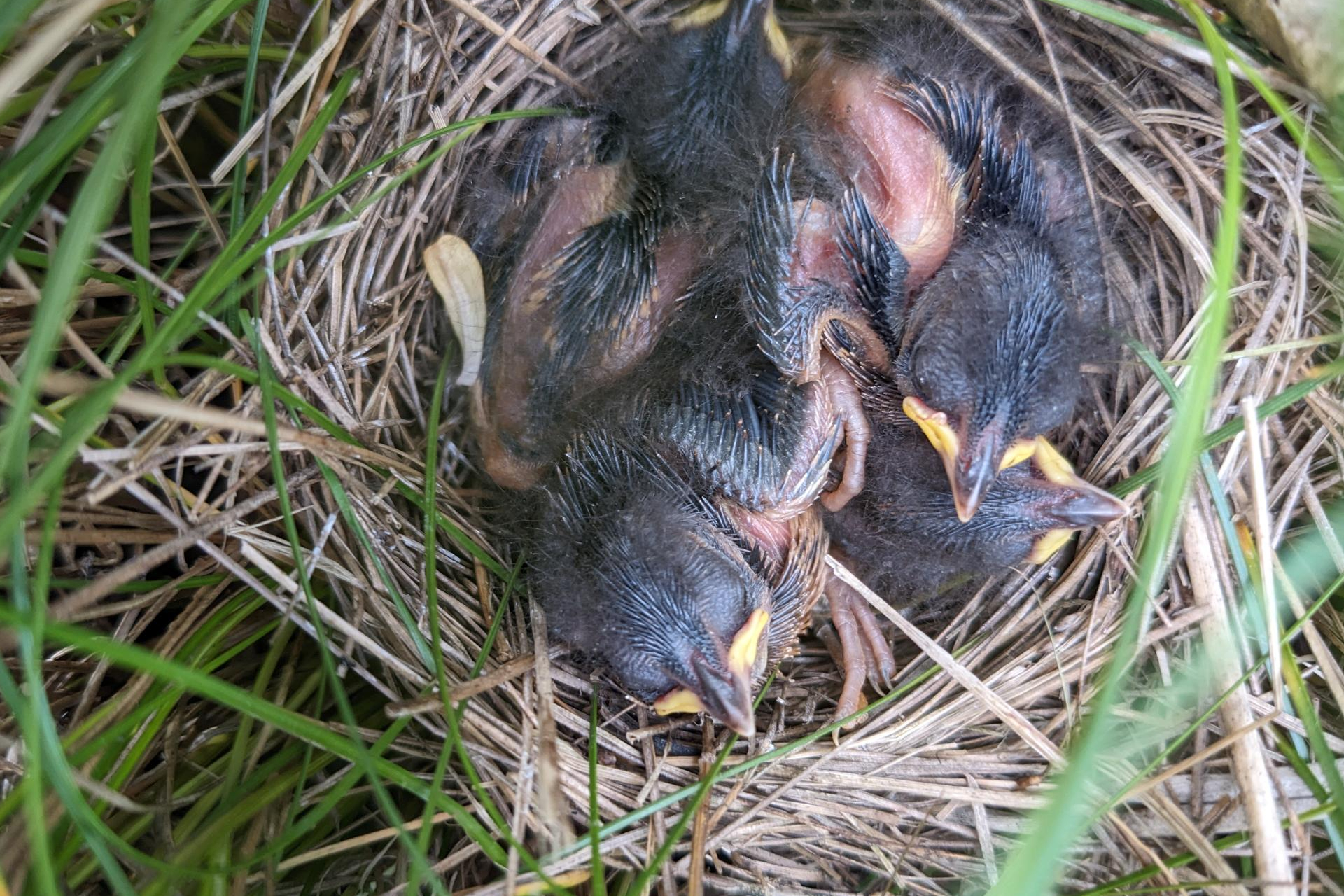Saltmarsh Sparrows Thriving at Allens Pond
June 10, 2024
Recently, Mass Audubon scientists began monitoring Saltmarsh Sparrows at Allens Pond Wildlife Sanctuary. The goal of this project is to understand how habitat restoration can help this vulnerable species. Last week, we banded 16 Saltmarsh Sparrows in a single morning at a restored area of the marsh, suggesting that we’re making progress in restoring coastal wetland habitat for these birds.
Our team also found all three of the other Massachusetts birds that nest only in salt marshes—Seaside Sparrows, Clapper Rails, and Eastern Willets. Seeing all these species at a single location is exceptionally rare in Massachusetts and indicates that Allens Pond could be a globally important habitat for salt marsh-dependent birds. We have many other wetlands restoration projects planned, and we’re encouraged by this success to keep pushing forward.
Banding Salt Marsh Birds
Monitoring birds is an essential part of measuring how well our conservation strategies are working. To achieve this, Mass Audubon safely captures birds, attaches small, lightweight bands to their legs, and releases them. These bands have a unique number, so researchers can monitor individuals. If banded birds are captured by other researchers during their migrations or over the winter, we will be able to further understand their movements and migration patterns.
At Allens Pond, our researchers follow procedures used by other scientists, so our results can tie into larger research projects. We coordinate our work with groups such as the Atlantic Coast Joint Venture and the Saltmarsh Habitat & Avian Research Program. Cooperation among researchers for salt marsh-dependent birds is critical because we all want to understand how bird populations are changing, and how we can work more effectively to conserve habitat.
Threats to the Saltmarsh Sparrow
Saltmarsh Sparrows are facing serious threats to their survival that make monitoring their populations crucial. Since 1998, more than four out of five Saltmarsh Sparrows have disappeared. Without intense conservation efforts, scientists predict that they could become extinct by 2050.
These small, orange-cheeked sparrows nest only in coastal salt marshes, a rare type of habitat that has been destroyed or seriously degraded across much of Massachusetts. For hundreds of years, people have been filling in salt marshes for agriculture and housing development or disturbing their natural flow by building ditches and embankments. Only a few of Massachusetts’ naturally occurring salt marshes remain, and many are in rough shape.
Nesting just above the average high tide line, Saltmarsh Sparrows have always lived a precarious existence. Now that climate change is causing stronger storms and rising sea levels, Saltmarsh Sparrows are seeing their nests washed away and chicks drowned more often. And, rising sea levels are flooding and destroying low-lying salt marshes, making this already rare type of habitat even scarcer.
Restoring Salt Marsh Habitat
Mass Audubon is restoring salt marshes all over Massachusetts to provide better habitat for birds and wildlife, help clean and filter water, and make coastal communities more resilient to flooding and extreme storms.
In the last few years, our team has restored 40 acres of salt marsh at Allens Pond Wildlife Sanctuary. As sea levels rise, lower-lying areas flood, so salt marshes need space to move to higher elevations. Mass Audubon has worked to restore the salt marsh at Allens Pond by removing sea walls, embankments, and other human-made barriers to marsh migration and by eliminating invasive species.
In addition to Allens Pond, Mass Audubon is beginning work on multiple other wetland restoration projects around the state.
Celebrating Progress for Wetland Birds
Recording all four of Massachusetts’ salt marsh dependent birds at Allens Pond strongly suggests that our restoration efforts have created a healthy ecosystem. Throughout the summer, we’ll continue monitoring birds at the wildlife sanctuary to confirm this result.
Dozens of species across Massachusetts are threatened by the loss of coastal marshes. Restoring these ecosystems can allow these animals to thrive, which is why we’re committed to completing restoration projects at salt marshes all over the state.
Stay Connected
Don't miss a beat on all the ways you can get outdoors, celebrate nature, and get involved.




